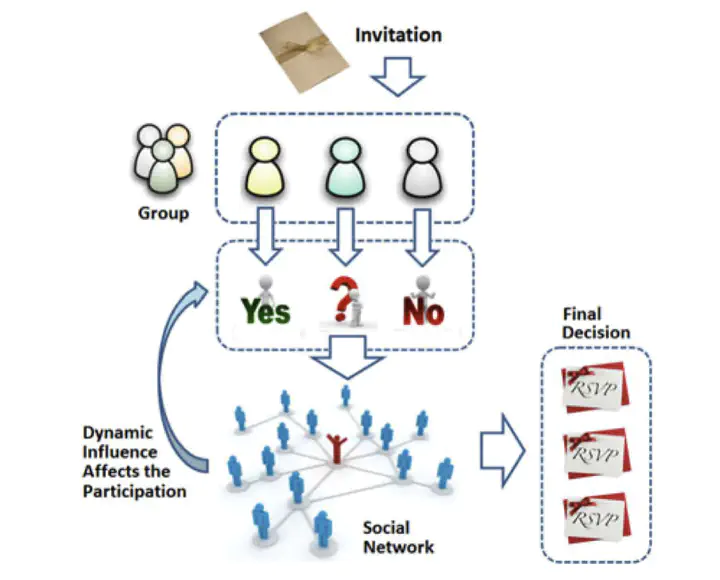Exploiting the Dynamic Mutual Influence for Predicting Social Event Participation

Abstract
It is commonly seen that social events are organized through online social network services (SNSs), and thus there are vested interests in studying event-oriented social gathering through SNSs. The focus of existing studies has been put on the analysis of event profiles or individual participation records. While there is significant dynamic mutual influence among target users through their social connections, the impact of dynamic mutual influence on the people’s social gathering remains unknown. To that end, in this paper, we develop a discriminant framework, which allows to integrate the dynamic mutual dependence of potential event participants into the discrimination process. Specifically, we formulate the group-oriented event participation problem as a two-stage variant discriminant framework to capture the users’ profiles as well as their latent social connections. The validation on real-world data sets show that our method can effectively predict the event participation with a significant margin compared with several state-of-the-art baselines. This validates the hypothesis that dynamic mutual influence could play an important role in the decision-making process of social event participation. Moreover, we propose the network pruning method to further improve the efficiency of our technical framework. Finally, we provide a case study to illustrate the application of our framework for event plan design task.